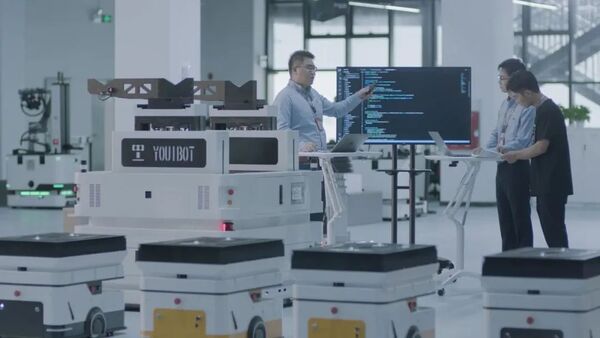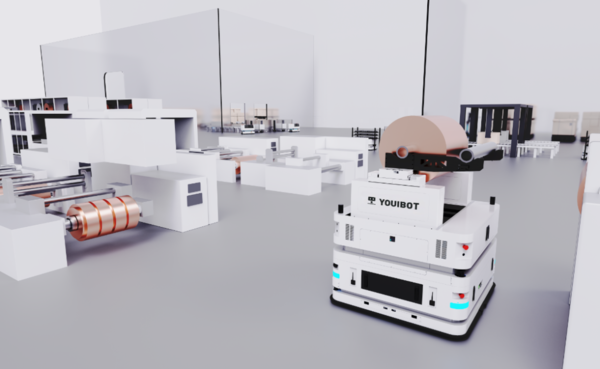© © 2025 Copyright © Youibot Robotics Co., Ltd. All rights reserved.SitemapPrivacy Policy
The lithium battery industry faces several challenges, including labor shortages, inconsistent manual operations, and suboptimal overall equipment effectiveness (OEE). In this article, we will explore how the application of mobile robots can address these pain points and revolutionize the industry.
The lithium battery industry has been struggling with several challenges, making it imperative to explore innovative solutions like mobile robots.
One of the primary challenges is the hard manual handling of heavy materials. In the initial stages of battery production, materials like cathode materials, anode materials, separators, and electrolytes can weigh up to 1000kg. Workers are physically stressed, and labor shortages are exacerbating the problem. With factories operating 24/7, often with 12-hour shifts, the need for multiple workers to handle large materials and perform challenging tasks increases the labor intensity and highlights the labor shortage problem.

Maintaining a clean and controlled production environment is crucial for lithium battery manufacturing. Factors like dust, temperature, and humidity can impact product consistency. Dust contamination caused by manual worker movements and incorrect handling can lead to quality control issues. Moreover, the complex processes involved in battery production, such as stacking and winding, require high precision. Slippery floors in the factory can result in inaccuracies during manual operations, leading to higher scrap rates and material waste.
The lack of real-time inventory data synchronization with ERP systems and manual inventory checks lead to slow information exchange. Buffer stocks at various stages of production are common, causing delays in response times to customer orders. Inefficient material flow, coupled with high material occupancy rates, adversely affect production efficiency and responsiveness.
To address these challenges, companies in the lithium battery industry are turning to Autonomous Mobile Robots (AMRs). Here's how AMR+ can bring value to the industry.
AMR+ systems break down data silos and enable efficient collaboration across the production line. Real-time data sharing enhances production line visibility and ensures smooth operations. This leads to improved overall equipment effectiveness (OEE) and production capacity.
With AMR+ systems, there is no risk of dust contamination, ensuring the quality of raw materials. AMRs execute material handling tasks with precision, reducing the risk of scrap due to human error. This, in turn, minimizes material waste and enhances overall yield rates.
AMR+ systems are a fundamental solution to the labor shortage issue in the industry. They can work tirelessly, 24/7, without fatigue or the need for rest, ensuring consistent and reliable performance.
AMR+ enables flexible scheduling and dynamic inventory optimization. With synchronized data and intelligent decision-making algorithms, these systems help reduce material buffer stocks, leading to lower costs and improved production responsiveness.

The transformational impact of mobile robots in the lithium battery industry is undeniable. Youibot's cutting-edge mobile robot solutions have redefined efficiency and precision while addressing critical challenges such as labor shortages, heavy material handling, and process consistency. As the industry continues to evolve, embracing Youibot's technology isn't just a choice; it's a strategic move toward a more sustainable and competitive future.
By continuing to use the site you agree to our privacy policy Terms and Conditions.